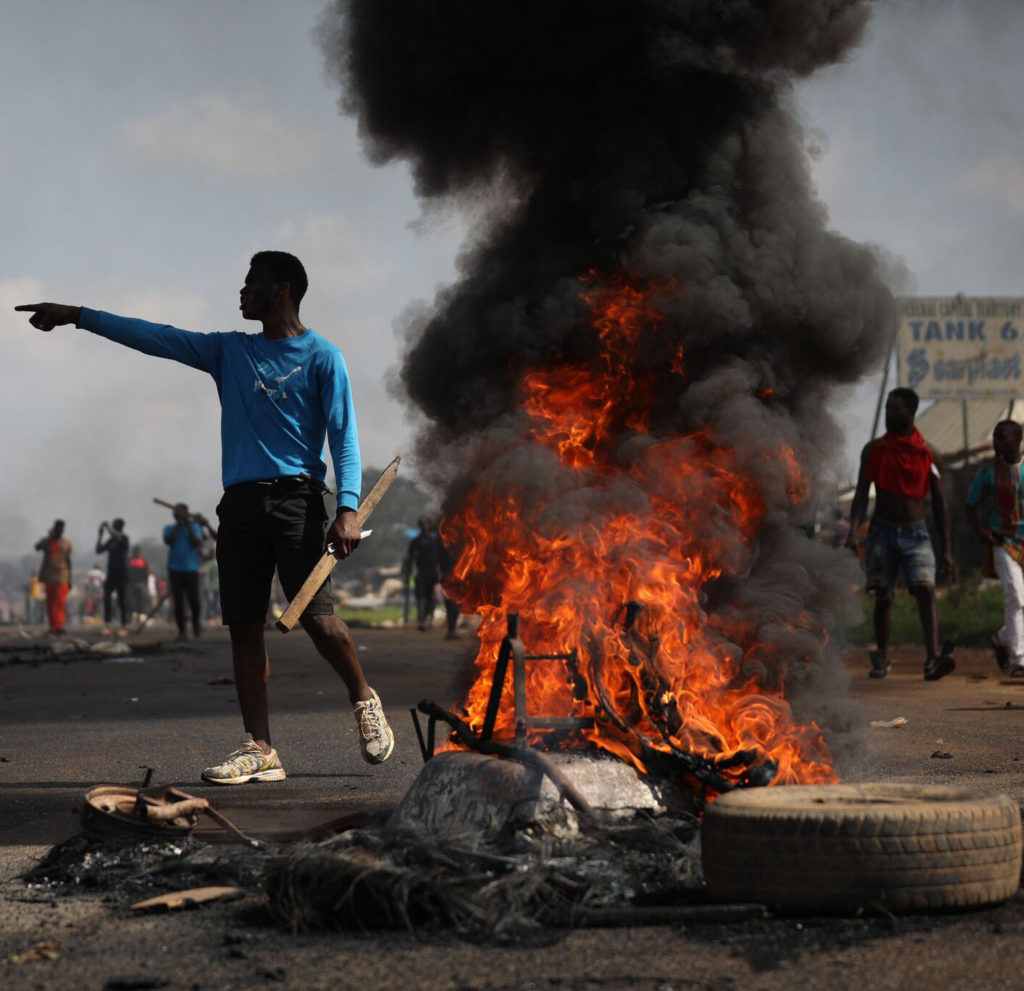On October 8, after a video of a Special Anti-Robbery Squad (SARS) officer ruthlessly murdering a young Nigerian man in the southern Delta State went viral, protests erupted across Nigeria. This is only the latest instance in SARS’s history of unlawful murder, abuse, and corruption. More broadly, the occurrences signify a global trend of government-funded police forces neglecting their duties to protect citizens.
SARS was founded in 1992 as a task force dedicated to investigating armed robberies, kidnappings, and other violent crimes through covert operations with police officers working in plain clothes, using unmarked cars, and wearing masks.
SARS notoriously targets young men and accuses them of being online fraudsters. Once the young men are detained, they have to pay excessive bail fees to be released or face years in prison without a proper sentencing. This illegal detention, coupled with an unsystematic criminal justice system, has forced 72.5% of local inmates to serve time without an official sentencing.
In reaction to this injustice, 10,195 people signed a petition to disband SARS and submitted it to Nigeria’s National Assembly in 2017, signifying the start of the EndSARS movement.
Although some Nigerian senators supported the disbandment of the task force, the National Assembly decided to reform the squad instead of completely dismantling the ruthless group. In response to this decision, Nigerian citizens conducted peaceful protests in a number of Nigerian cities and states, demanding for the government to abolish SARS.
Finally, Nigerian Vice President Mr. Yemi Osinbajo ordered for the dissolution of SARS in August of 2018. However, the “dissolution” was merely a change of name from SARS to Federal-SARS (F-SARS).
Obviously, this did not solve the problem. Amnesty International reported 82 cases of human rights abuses by SARS between January 2017 and May 2020, including numerous judicial killings, physical assault, shooting detainees, and threats of execution.
After the video went viral, protesters slept outside of the Lagos State Governor’s House from October 8 to October 9. The Deputy Governor of Lagos State Mr. Obafemi Hamzat then addressed the protesters, speaking out against police brutality.

Protests continue in Nigeria, demanding the disbandment of SARS. Photo courtesy of The New York Times
Unfortunately, Mr. Hamzat’s condemnation and pledge to investigate the allegations against SARS did not resolve the issue.
As a result, on October 11, protesters made five demands: release all protesters who were detained, give appropriate compensation for the families of deceased victims, establish an independent investigative body for prosecution of all reported acts of misconduct, retrain SARS officers and make them undergo a psychological evaluation before they can resume their duties, and increase police salaries.
In response to the protests, F-SARS and other tactical units were relieved from all police activities, and, on October 11, the Nigerian Police Force announced the complete dissolution of the SARS unit. Nonetheless, many Nigerians remained skeptical and continued their protesting.
#EndSARS has garnered support on Twitter, and numerous demonstrations have occurred internationally in Canada, Germany, Ireland, the U.K., and the U.S.
There are many parallels between the circumstances of police brutality in Nigeria and the U.S. George Floyd’s murder back in May was one in a string of deaths of black men and women at the hands of white police officers. Similar abuses of power around the world beg the question: What steps should we take to ensure officers are held accountable for their actions?
First, we need to firmly reestablish the purpose of police forces: their mission is to protect citizens by working with communities and not by employing deadly force or intimidation.
Second, more resources need to be dedicated to police training.
Finally, all police officers must be held accountable for their actions. The demands made by the EndSARS protesters are also effective mechanisms to enhance the performance of police forces and the relationship between the community and the police.
I am optimistic that reform will happen in the U.S. and Nigeria, and I hope that citizens will feel safer in their communities. Although change takes time, we are, in fact, making progress.
My hope is for us to live in a world where we bridge the gap between institutions and individuals. If we continue uniting as global citizens, society will continue to move in a positive direction.




